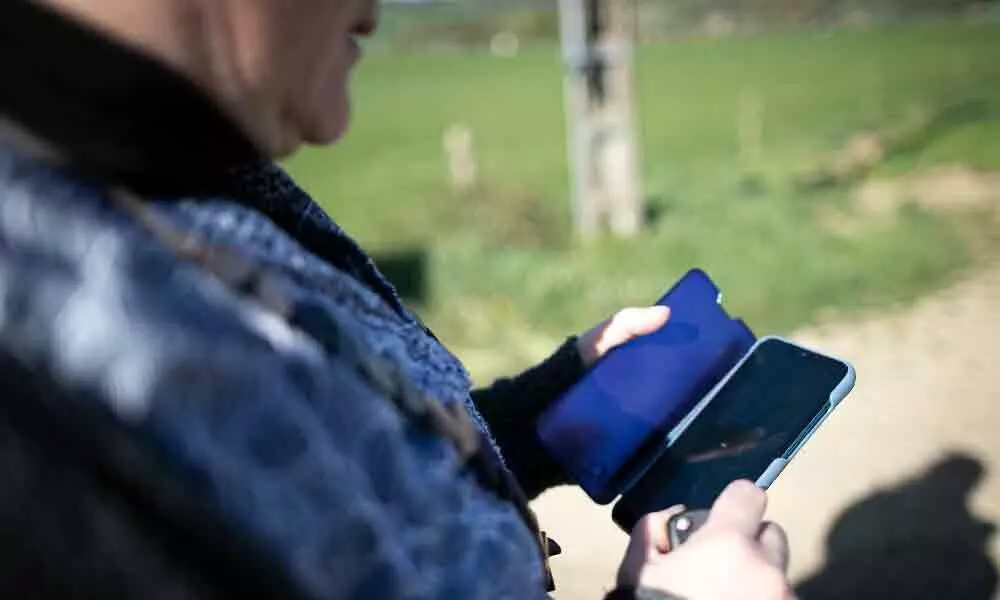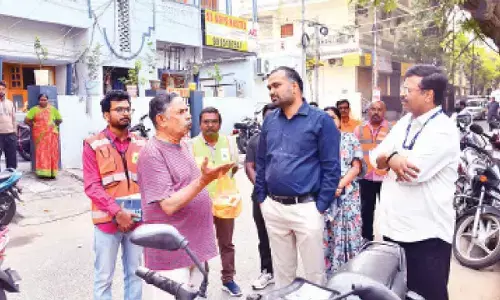Contact tracing apps may be ineffective for reducing Coronavirus spread: Study

Contact tracing apps may be ineffective for reducing Coronavirus spread: Study
Contact tracing apps are unlikely to contain the spread of Covid-19 without proper public health control measures such as physical distancing and closure of indoor spaces, according to a review of studies.
LONDON: Contact tracing apps are unlikely to contain the spread of Covid-19 without proper public health control measures such as physical distancing and closure of indoor spaces, according to a review of studies.
The systematic review, published in the journal Lancet Digital Health on Thursday, shows that evidence around the effectiveness of automated contact tracing systems is currently very limited.
The research suggests that large-scale manual contact tracing alongside other public health control measures -- such as physical distancing and closure of indoor spaces such as pubs -- is likely to be required in conjunction with automated approaches.
The researchers from University College London (UCL) in the UK found 15 relevant studies by reviewing more than 4,000 papers on automated and partially-automated contact tracing.
They analysed these to understand the potential impact these tools could have in controlling the Covid-19 pandemic.
"Across a number of modelling studies, we found a consistent picture that although automated contact tracing could support manual contact tracing, the systems will require large-scale uptake by the population and strict adherence to quarantine advice by contacts notified to have a significant impact on reducing transmission," said lead author Isobel Braithwaite from UCL.
In total, 4,033 papers published between January, 2000 and April, 2020 were reviewed, which allowed researchers to identify 15 papers with useful data.
The seven studies that addressed automated contact tracing directly were modelling studies that all focused on Covid-19.
Partially-automated systems may have some automated processes, for instance in determining the duration of follow-up of contacts required, but do not use proximity of smartphones as a proxy for contact with an infected person.
Analysis of automated contact tracing apps generally suggested that high population uptake of relevant apps is required alongside other control measures, while partially-automated systems often had better follow-up and slightly more timely intervention.
"Although automated contact tracing shows some promise in helping reduce transmission of Covid-19 within communities, our research highlighted the urgent need for further evaluation of these apps within public health practice," said Braithwaite.
"None of the studies we found provided real-world evidence of their effectiveness, and to improve our understanding of how they could support manual contact tracing systems," Braithwaite said.
The review shows that, at present, there is insufficient evidence to justify reliance on automated contact tracing approaches without additional extensive public health control measures.
"We currently do not have good evidence about whether a notification from a smartphone app is as effective in breaking chains of transmission by giving advice to isolate due to contact with a case of Covid-19 when compared to advice provided by a public health contact tracer," said Robert Aldridge from UCL Institute of Health Informatics.
"We urgently need to study this evidence gap and examine how automated approaches can be integrated with existing contact tracing and disease control strategies, and generate evidence on whether these new digital approaches are cost-effective and equitable," Aldridge said.
If implemented effectively and quarantine advice is adhered to appropriately, automated contact tracing may offer benefits such as reducing reliance on human recall of close contacts, which could enable identification of additional at-risk individuals, informing potentially affected people in real-time, and saving on resources, the researchers said.
"We should be mindful that automated approaches raise potential privacy and ethics concerns, and also rely on high smartphone ownership, so they may be of very limited value in some countries," Braithwaite said.
"Too much reliance on automated contact tracing apps may also increase the risk of Covid-19 for vulnerable and digitally-excluded groups such as older people and people experiencing homelessness," Braithwaite added.






